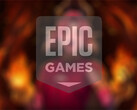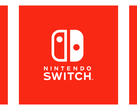Most news from the video game industry tends to be negative – layoffs, crunch, or poor treatment of staff. But for once, the US-based studio Obsidian Entertainment is making headlines for the right reasons. They’ve turned the workday into a kind of “real-life RPG.” In an interview with The Game Business, Marcus Morgan (VP of Operations) and Justin Britch (VP of Development) explained how the system works and what inspired it.
“We hope this is a place where people want to stay for ten or even twenty years,” says Britch. The goal is to foster a company culture that encourages long-term commitment. To make that happen, Obsidian has embraced an approach that fits perfectly with its roots: gamification inspired by classic role-playing games.
Loot in the workplace
As part of the official onboarding process, new employees choose one of three classes – warrior, wizard, or rogue. In the years that follow, they receive physical rewards that correspond to their chosen path. A warrior might earn a shield, axe, or helmet, while a wizard collects themed items such as a cloak or wand.
The items are custom-made and meant to be more than just fun extras – they serve as visible symbols of identity and belonging. After 20 years, long-time team members can “multiclass,” choosing a second class and unlocking new rewards. “If you wanted to experience all three classes,” Britch adds with a grin, “you’d have to stay for about 60 years.”
The system is logistically demanding, as Marcus Morgan admits – designing, producing, and distributing the items requires careful planning. But the symbolic value makes it worthwhile. “Our roots are in Dungeons & Dragons. We all see ourselves as Dungeon Masters,” says Morgan. For context, many of Obsidian’s founders previously worked at Black Isle Studios, the legendary team behind Baldur’s Gate, Icewind Dale, and Planescape: Torment – games that were directly based on Dungeons & Dragons rulebooks.
The idea of shaping work like a role-playing game feels like a natural extension of Obsidian’s identity. The unique reward system is part of a broader, long-term strategy – one the studio even describes as a 100-year vision. “We want people to stay for a long time because they connect with our culture,” Morgan explains.
Source(s)
Image source: adriano7492/Pixabay


















